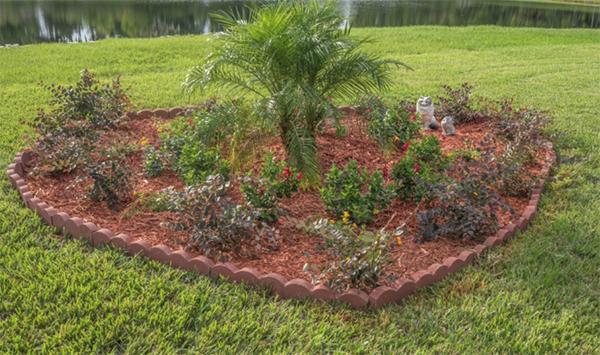News And Advice From The Leading Thousand Oaks Tree Trimming Company
There’s always a nice sense of accomplishment after planting a new tree, shrub or bed of flowers. To put the finishing touch on that job, though, there’s one more thing to do: add mulch. It adds the final accent that makes your handiwork look professional and polished.

Organic Mulch or Stones?
One question, though — what kind of mulch should you use? Basically, you have two choices: organic mulch or inorganic, which typically means stones. As with most any choice involving trees and plants, there are pros and cons to your choice. With organic mulch, there are a variety of compelling pros:
- Healthy growth — organic mulch really encourages growth in trees and plants
- Conservation — Mulch reduces evaporation so you save on your water bill and spend less time watering
- Nutrition — Mulch adds nutrients to your trees and plants as it breaks down, and those nutrients help them thrive
- Weed control — Weed seeds are inhibited from sprouting by mulch, which means greatly reduced weeds around your trees
- Temperature moderation — Mulch acts as a natural blanket, keeping plants warm in the winter and cooler in the summer
- Reduced erosion — Soil is much less likely to erode when there’s a good blanket of mulch above it
But there’s always a flip side to things, which means that cons include:
- Upkeep — Mulch wears down over time, which is exactly what organic material does. That means you’ll need to replace it every one to four years. That equals time and expense.
- Precise care — You need to be careful when you lay down a layer of mulch. It needs to be two-three inches thick or it can detract from plant health.
- Timing — We’re in a pretty warm climate with mild winters, but you should still be aware that the ground needs to warm a bit before you lay down mulch, especially with flowering plants. Lay it down too early and the ground does not warm up enough, which delays blooming. On the other hand, mulch stops weeds from germinating, so if you mulch too late you may get extra weeds.
- Potential weeds — Speaking of weeds, organic mulches may have weed seeds mixed in. Not much you can do about that except be ready to pull a few weeds.
If you think that list of cons outweighs the pros for organic mulch, you might be considering a non-organic covering — aka stones.
Again, though, there’s no free lunch, so here are the pros and cons of using stones.
On the plus side, you can count on:
- Low cost and maintenance — Although stones may be a little pricey to begin with, their lifetime expense is actually low because you practically never need to replace them.
- Non-combustible — With memories of the Thomas and Woolsey fires still pretty fresh, it’s nice to know that stones are the definition of fireproof. It’s a little thing but those little things add up in fire season.
- Weed-proof — Well, not exactly completely weed-proof, but rocks do a very good job of preventing weeds from sprouting.
- Wind-proof — This is no exaggeration. When the Santa Anas blow you might notice some of your organic mulch blowing across the yard. Not a chance if you use stones.
- Drought-friendly — In drought years many Conejo Valley homeowners turn to landscaping with drought-resistant plants such as cacti. Rocks complement that look nicely — think upscale Scottsdale designs and you’re on the right track.
The downside, though, means:
- Hot hot hot — In the middle of summer those stones heat up pretty drastically, raising soil temperature and making your vegetation extra thirsty.
- Health agnostic — Stones do not provide any of the residual benefits of organic mulch providing nutrients as it breaks down.
- Alkaline blues — Most trees thrive in mildly acidic soil, but stones do nothing to combat alkalinity which can harm trees.
- Tough weeding — When the occasional weed does sprout between stones it’s a little tougher to uproot the weed cleanly.
- Manual labor — Whereas you can grab a shovel to add or remove organic mulch, you’re more likely to have to lay or remove stones by hand. No fun.
Our conclusion: Organic mulch’s benefits outweigh its drawbacks, and it outweighs the benefits of stones. However, both are better than no mulch/covering at all — both for aesthetic reasons and for the health of your trees. Need some help with tree trimming or stump removal before you begin mulching? Give us a call! We’re always happy to help.

